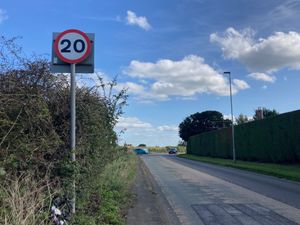New 20mph Welsh speed limit money 'would be better spent on potholes' says MP
An MP from the Shropshire border says he is having endless emails from constituents unhappy about the new 20mph speed limit in Wales.

Simon Baynes MP, whose Clwyd South constituency takes in Chirk and villages along the English border, says he believes most Welsh people are against the changes.
He says it was forced through without proper consultation or evidence and has launched a petition to overturn the policy and return speed limits in built-up areas to 30mph.
“I have received numerous complaints in Clwyd South about the introduction of the blanket 20mph policy by the Labour Welsh government which has been introduced at vast cost and without proper consultation," he said.
"We have found conflicting signs on roads in Clwyd South and many people feel that the costs of changing signs would have been better spent on mending potholes."
Mr Baynes said he agreed that some places needed 20mph zones, such as near schools and hospitals.
"But these should be clearly marked and enforced, and not applied to all roads. This policy also creates inconsistency at the border with England in Clwyd South. Sometimes, the border is not marked or splits streets in half. This means that the Highway Code does not apply equally across Britain."
The MP says the policy will damage North Wales’s economy and fail to improve road safety and air quality.
"Since its implementation, my office has been contacted numerous times by residents who are concerned with various aspects of the change.
"The 30mph limit has been the national standard since 1935 and is part of the Highway Code for Great Britain. Our roads are very safe thanks to high design and technology standards."
Supporters of the new, 20mph default limit in built-up areas say research over the years has found that there is a 20 per cent chance that a person hit at 30mph will be killed. At 20mph, the risk of death is said to be reduced to a 2.5 per cent chance.
They also say the lower speed limit makes just a minute-per-mile difference in travel times.
Mr Baynes says there is no proof that the policy, which he says will cost £32.5m, will reduce accidents or pollution and claims it could increase congestion and frustration instead.





